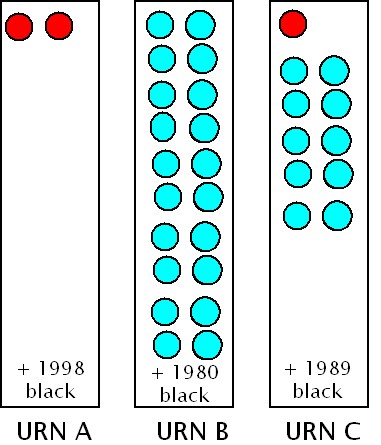Note added on 4/5: Readers who want the short version can skip down to where it says “Edited to Add”.
I’m somewhat hesitant to post this, since I believe my regular readers will find it all to be entirely obvious and hence entirely unnecessary. But we’ve had more than the usual number of non-regular readers here the past few days, largely in response to my post on psychic harm, and more than a few of them have made the mistake of plunging into a conversation they didn’t understand (often, apparently, without even reading the post they were responding to). Per my usual policy in long threads, I’ve deleted comments that failed to advance the discussion, either because they were off topic or did no more than repeat things that had already been said. In most, but not all, such cases, I drop short notes to the commenters, explaining why their posts were deleted and inviting them to come back with something more germane. Often (and this week has been no exception), I get notes back from these people saying they’ve learned something, which is gratifying enough that I keep on sending those explanatory notes. (If your post was deleted and you didn’t get a note, you probably just had the bad luck to post at a time when I was unusually busy or distracted.) But since certain points come up repeatedly, it might be more efficient to mention them here.
1. This was not a post about censorship, or about the environment, or about rape. It was a post about where to draw lines between purely psychic harm that should receive policy weight and purely psychic harm that shouldn’t. This is an issue I raise from time to time, because I find it both perplexing and important. And it interacts with lot of other standard issues in public policy in ways that make it impossible (for those of us who care about such things) to ignore.
2. The post was laden with unrealistic hypotheticals. That’s the only way I know of to approach these questions. Take rape, for example. Rape frequently has ghastly physical and psychological consequences for the victim. We all know that, which is precisely why it’s important (in this kind of discussion) to assume those consequences away. The whole point is to focus on the stuff we’re not sure of, such as: Should my distress over someone else‘s rape receive policy weight? To focus on that question, it helps to imagine a scenario where that’s the only distress. In other words, we assume away all the usual harm to the victim precisely because we’re already know that this harm is dreadful and merits policy weight. To focus on examples where the victim sustains damage would be to say, in effect, that we’re not sure how to feel about that damage. (Otherwise, why investigate those examples?)
Or to put this yet another way: In this business, the way one acknowledges that an issue is settled is to assume it away. It is settled that damage to rape victims is real, great, important, and deserves the attention of the law. Thus we assume it away.
Edited to add: Two extremely thoughtful commenters have pointed out that the first post dealt both with psychic harm to the victim and with psychic harm to the general public, and that these are two different issues. Indeed they are, but both are difficult in the same way, and both of them are clarified by hypothetical examples.
Continue reading ‘Blog Notes’


















